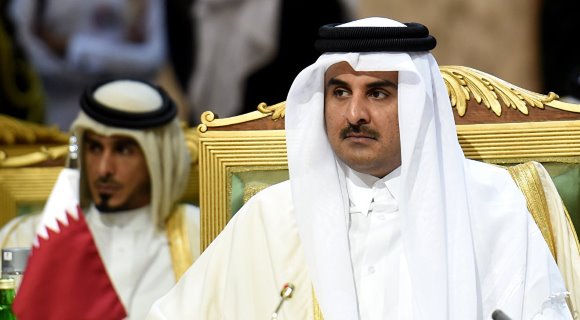Gulf reconciliation stumbles

Why has the Saudi-Qatari rapprochement suddenly come unstuck?
Despite recent signs that Saudi Arabia and Qatar are moving towards a reconciliation, it seems almost certain that Qatar’s emir, Sheikh Tamim Bin-Hamad Al-Thani will not, contrary to expectations, be attending this week’s annual Gulf Cooperation Council (GCC) summit in Riyadh.
This impression was strengthened by the fact that on Monday, the Qatari ruler flew off to Rwanda to attend an award ceremony for a human rights prize bearing his name. As though to underline his absence from the region, his departure for the central African country was accorded front-page coverage by Qatari newspapers and websites.
At the same time, Qatar despatched a junior minister, Sultan Bin-Saad al-Muraikhi, to the Saudi capital to attend the pre-summit meeting of foreign ministers. It was Muraikhi who sat in the Qatari seat at last year’s GCC summit, and observers wondered why he was sent to the preparatory gathering for this year’s instead of Foreign Minister Abderrahman Bin-Muhammad Al Thani – whose unpublicised visit to Riyadh last month raised hopes of a breakthrough in relations between the two sides.
Qatari-funded news outlets have meanwhile begun suggesting that Tamim might refrain from attending the summit because Saudi Arabia and its allies the UAE and Bahrain continue to maintain their blockade of Qatar and have not taken any formal measures to lift it. This means they are continuing to demand Qatar’s compliance with the 13 demands they set out when they began the blockade, and that if Tamim attended the summit it would imply he was backing down to them.
In the Saudi and Emirati press, on the other hand, articles have appeared criticising the Qatari media for giving the opposite impression: that Tamim’s prospective attendance at the summit meant it was his adversaries who had given in, and that Qatar had emerged victorious from the standoff with them.
There have also been leaked reports that Qatar wanted the summit held in a neutral GCC capital like Kuwait or Muscat. It saw the last-minute decision to move it from Abu Dhabi, where it was originally due to be held, to Riyadh as a bid to make it look as though Tamim had been whipped back into line by the Saudis and conceded to all their terms.
Give all the above, the chances of the Qatari ruler taking part in the GCC summit look slim to non-existent. All the positive moves that indicated a rapprochement with Riyadh was underway – including the participation of the Saudi, Bahraini and Emirati teams in the Gulf Cup football tournament in Qatar, and the halting of hostile propaganda exchanges between the two sides – appear to have come to nothing.
We cannot know what actually happened, nor what is happening, behind closed doors. But it is a safe guess that the ire of Egypt and/or the UAE – both angered by the Saudis brokering a deal with Qatar that excluded them – play a role in scuppering the deal that was in the making, and turning widespread hope of a reconciliation into despair within a matter of a few hours.
https://www.raialyoum.com/index.php/gulf-reconciliation-stumbles/
 TheAltWorld
TheAltWorld 
0 thoughts on “Gulf reconciliation stumbles”